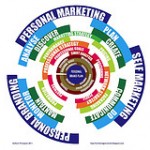 I’m focusing this time on the concept of emotional intelligence (EI). Is it mumbo jumbo or a secret weapon you can tap into? Read on to find out!
I’m focusing this time on the concept of emotional intelligence (EI). Is it mumbo jumbo or a secret weapon you can tap into? Read on to find out!
- EI – what is it?
- How can EI help you?
Emotional intelligence: What is it? How can it help you?
My definition is simple; EI is being intelligent about your emotions. It’s making the best of yourself using a high degree of self awareness. It is about getting the best out of others too. It works by combining the head i.e. thinking and logic on the left side of the brain (if you are right handed) and creativity on the right hand side and the heart: the emotions and feelings. This concept is based on the work of Daniel Goleman. He wrote 2 international best sellers:
- “Emotional Intelligence”
- “Working with Emotional intelligence”
His definition says that “EI is about being smart, how we handle ourselves and our relationships”. Essentially he talks about how this matters more than IQ and educational success.
How about we bring EI alive? Let’s think about this together. Imagine a very bright person, very intelligent, who has passed lots of exams. Now add in their interpersonal skills, how they get on with other people…say in this case poorly. In Goleman’s terms they are best suited to back room jobs where they can be great thinkers and analysts. However, most jobs require some people contact and relationship building. So imagine the combination of someone who is bright and good at relationships…they will find it much easier to find work, will be good in a team, able to lead a team etc. All round they are more likely to be successful in the organisation as they don’t need to work in isolation! Goleman says the EI competencies (which we will come onto in more depth) are not innate talents, but learned abilities.
So how does this apply to all of us? To be more successful we can all work on our EI; to get the best out of ourselves and others, to adapt to situations we are in and the people we are with.
As Charles Darwin wrote: “It is not the strongest of the species who survive, nor the most intelligent, but those who are the most adaptive to change.”
So, if you need to make sure that you can adapt, please get in touch. Tweet


 Customers are demanding more; they want the promise of value that you offer.
Customers are demanding more; they want the promise of value that you offer. You may think that Personal Branding has nothing to do with you but read on and consider whether you can afford to ignore it!
You may think that Personal Branding has nothing to do with you but read on and consider whether you can afford to ignore it!